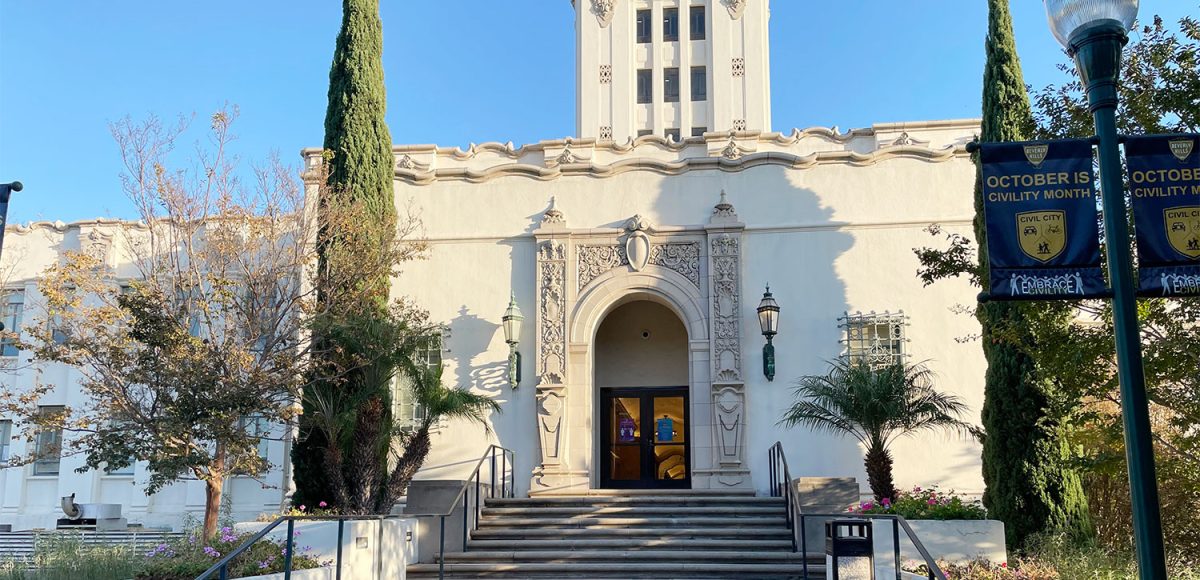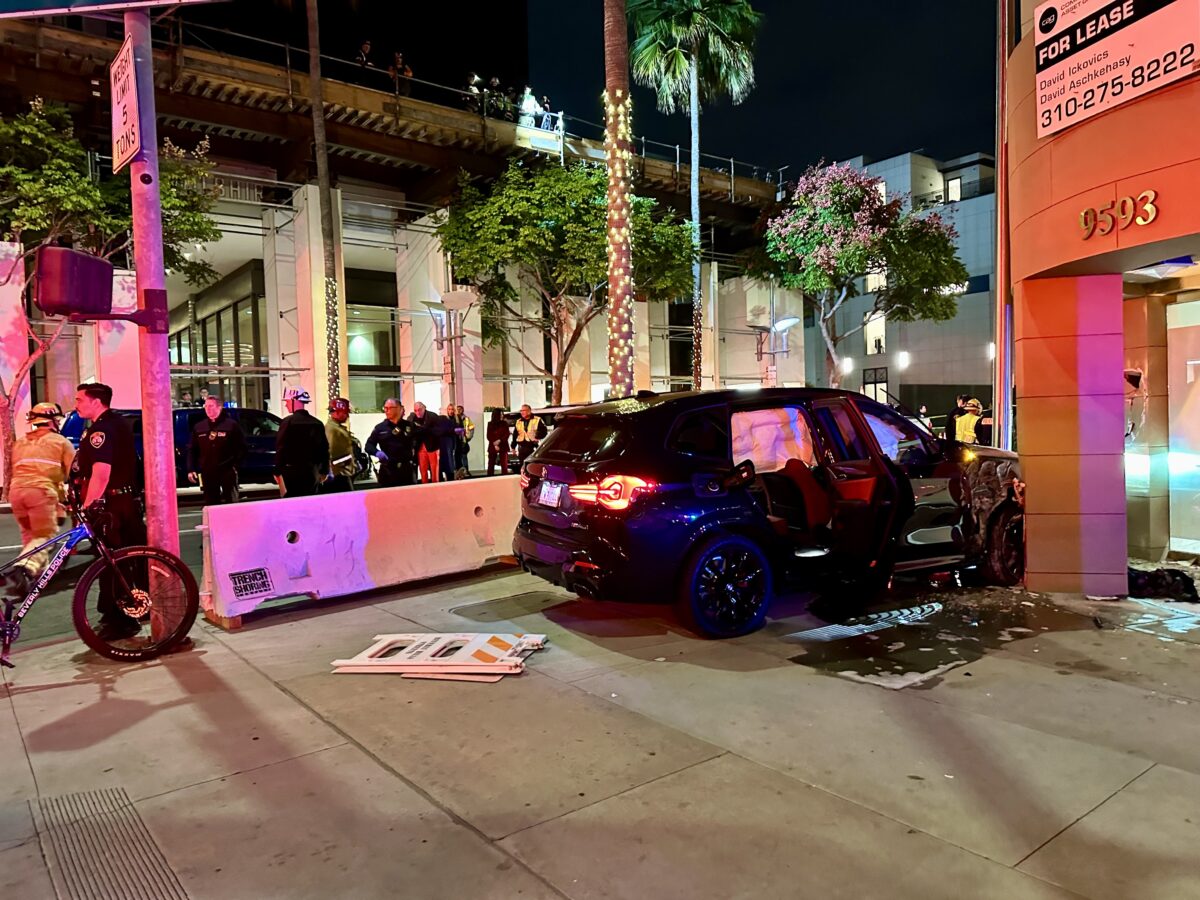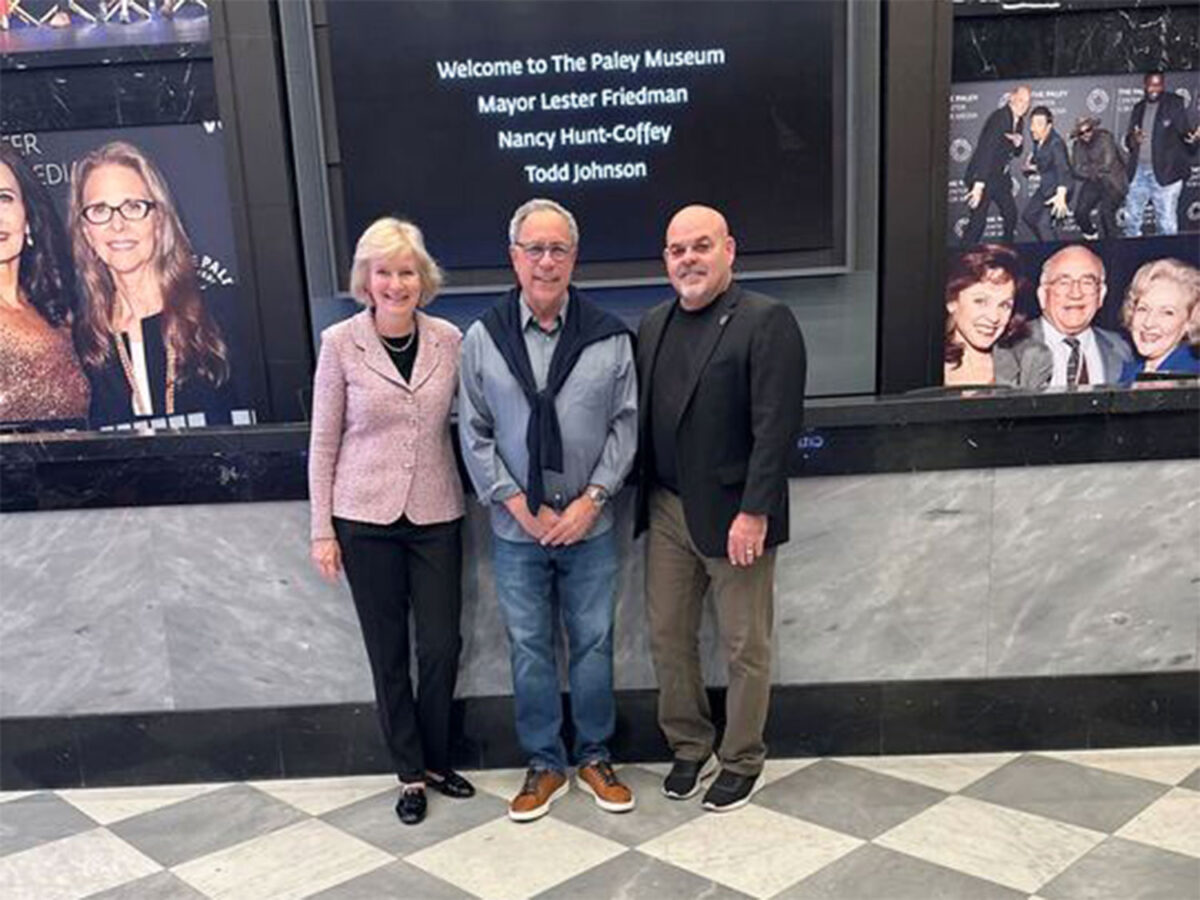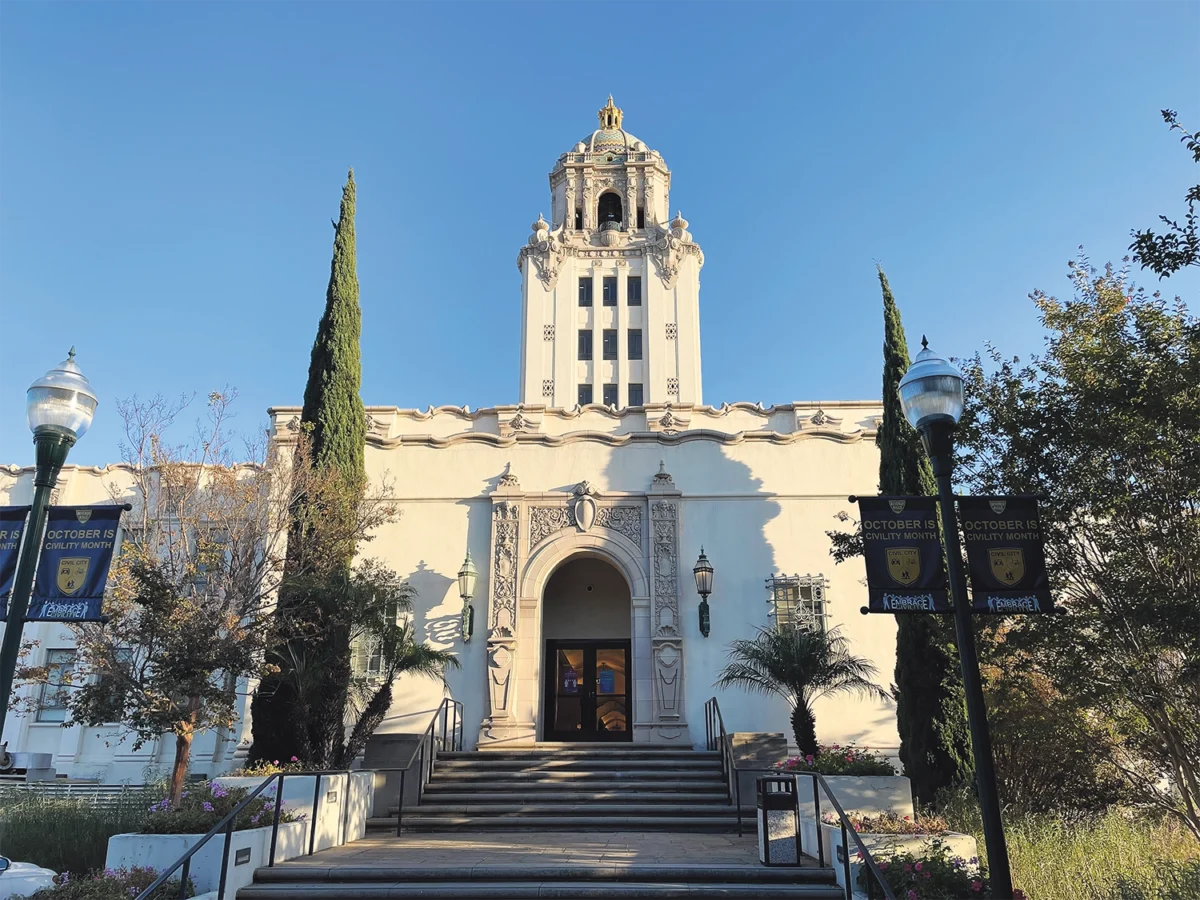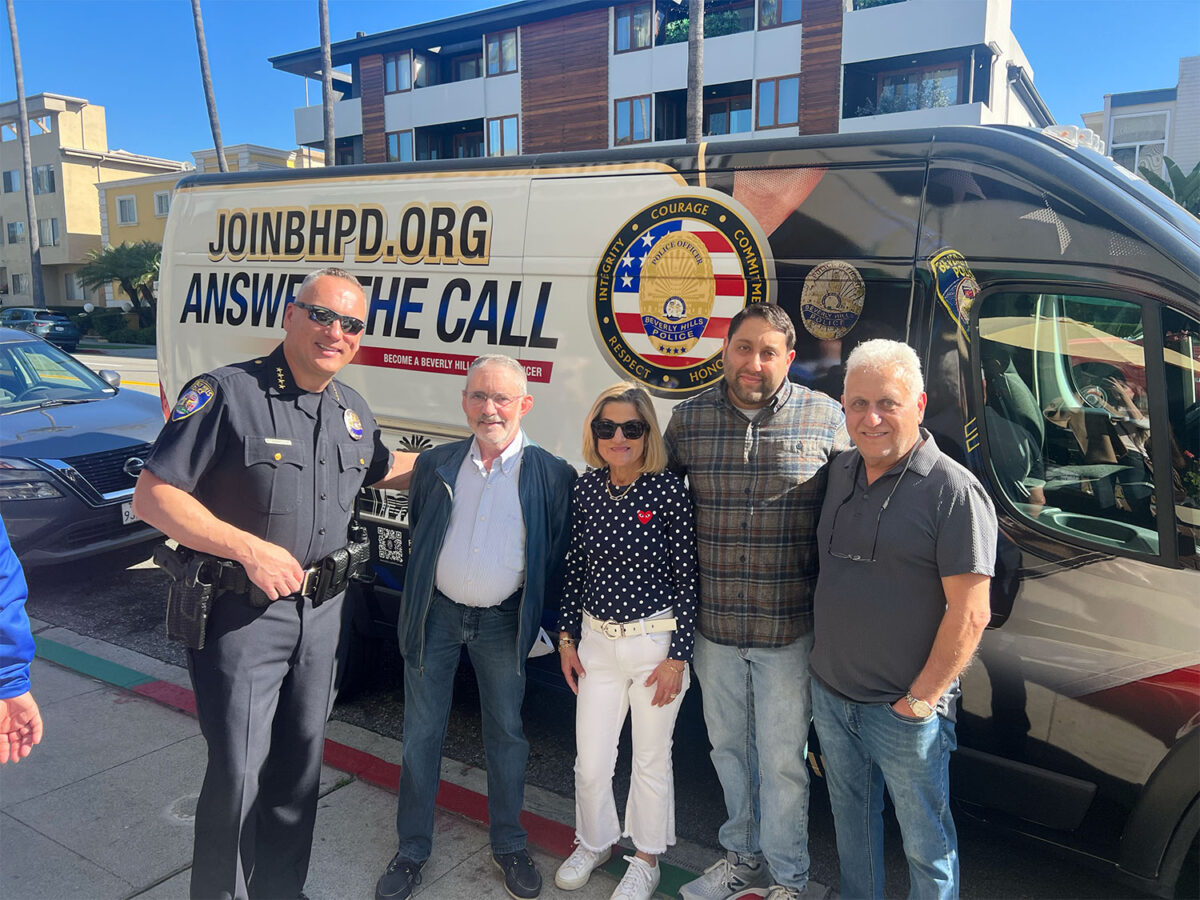The city’s Preferential Parking Permit (PPP) program was reintroduced to the public at City Hall on Nov. 3. About 30 people were physically or virtually present at the Town Hall meeting to hear from police sergeants and provide feedback about changes relating to the program, which establishes permits to park in residential areas during non-overnight hours.
The meeting started with an overview of the current program, including reminders of three permits per household and how permits could be self-managed online or via phone. Ahead of the PPP’s proposed relaunch in 2023, Beverly Hills Police Department (BHPD) personnel were on hand to explain how the system would work moving forward and answer residents’ questions – particularly about “permit by plate,” or the use of license plates as an acceptable alternative to hangtags.
In what was referred to as “a holistic approach to parking,” BHPD Sergeant David Tomlin gave an overview of the city’s partnership with a new technological service provider. Tomlin announced BHPD’s plan to increase reliance on license plate recognition (LPR) technology, with patrol cars being outfitted with devices to scan and verify rear license plates. At the moment, the Department is using four vehicles with LPR and has ordered six more.
“With the support of Public Works, we’ll have all of our vehicles outfitted here within the next few years,” Tomlin said. “That would be my dream.”
Several attendees were worried about enforcement. Multiple audience members recalled experiences where police were quick to respond to their reports but weren’t able to find permit less vehicles on their own – a system that one resident called “more reactive than proactive.”
With the implementation of permit by plate, these residents would need to rely entirely on police patrol or memorize every regular vehicle in the neighborhood. Tomlin acknowledged the concern but argued that the new technology would allow BHPD to “be preventative and be able to go out there and anticipate these issues” without manual scrutiny.
A number of other issues were discussed in the Town Hall as well, from illegally selling permits to ticket appeals processes. Attendee David Gingold asked a range of questions himself, prompting explanations about special occasion permits, disabled placard exemptions, and account management.
“I’m one of the few people in the city who sees all sides of the situation,” Gingold said.
Many audience members had comments about technological capabilities as well. One pointed out that some cars might be parked too tightly for the camera to accurately read a license plate, while another suggested that the patrol cars could be more efficient if they could read front plates as well.
Answering one such question about what would happen if the reader confused an “O” for a “0” or “D”, Tomlin cited the appeals process and a particular software feature.
“[If] it’s still pushed through, the LPR system has what’s called a ‘make mismatch,'” Tomlin said. “I’ll look at the picture, and if it’s anywhere close, we always go ahead and vote in your favor.”
Resident Steve Galen talked about a handful of issues relating to guest parking, such as time limits on friends or caregivers intending on short stays, but he spoke optimistically throughout his feedback.
“I’m glad we’re moving forward with this,” Galen said. “I’m glad we’re bringing this city into the 21st century.”
At the conclusion of the meeting, the proposed changes were set to be officially presented to City Council. Pending approval, current permits would be automatically extended until the end of January, with the new Preferential Parking Program taking effect a week later on February 6.
Gingold told the Courier he was satisfied with the explanations he received throughout the evening. To him, the continued use of hangtags made the program “very equitable,” and his concerns about account management via phone rather than a website were addressed too.
“For senior citizens who aren’t into technology, it was like learning a foreign language,” Gingold said.
“The explanations were very forthright language,” Gingold said. “The explanations were very forthright.”



